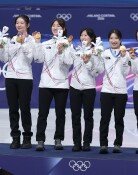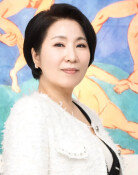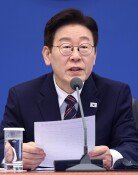Pyongyang stops calling Seoul ‘South Joseon’
Pyongyang stops calling Seoul ‘South Joseon’
Posted January. 25, 2024 07:48,
Updated January. 25, 2024 07:48
"South Joseon,” the term used by the North Korean regime to refer to South Korea, is not mentioned anymore in North Korean news reports. Instead, the regime has called it "the Republic of Korea” since North Korean leader Kim Jong Un said in the party's plenary session held at the end of last year that inter-Korean relations are not defined as homologous but as the relations of hostile countries with guns pointed at each other, calling for a fundamental shift in dealing with South Korea issues. By then, Kim often referred to South Korea as "South Joseon” and mentioned "the Republic of Korea” just a few times. However, since the turn of this year, the term "South Joseon” has been completely removed from all media reports.
All of such change in Pyongyang's attitude dates back to six months ago. Last July, the regime abruptly referred to Seoul as the Republic of Korea with the chevron-shaped quotation mark (≪ ≫) in an accusatory statement by Kim Yo Jong criticizing U.S. reconnaissance aircraft flying over the North Korean economic exclusive zone. Around that time, the term would be exclusively used in Kim Yo Jong's statements that "South Joseon” was occasionally mentioned at the regime's convenience. Since then, the long-used name of South Joseon has gradually been replaced by its official name.
It did not mean a mere change of a single word because the new replacement – the Republic of Korea – could have come across as emotionally disturbing and confusing to North Korean residents. To mitigate the side effects, the regime has added contemptuous nouns, including "gangs” and "jerks,h” or sneering modifiers such as "foreign powers’ most loyal cat's-paw.” Last October when the two Koreas played a match in the Asian Games, it described the game as being held between Joseon and “dummy puppets” presumably to avoid mentioning the Republic of Korea.
This was only the beginning. In a speech at the Supreme People’s Assembly earlier this year, Kim ordered the removal of the unification-related phrase “autonomy, peace, and solidarity of the Korean nation” in the regime's Constitution and erased the concepts of unification, reconciliation, and national homogeneity in historical references. Likewise, it will likely take out "South Joseon” and "peaceful unification” of the rules of the ruling Workers' Party. In complete denial of the groundwork done by his grandfather and father, Kim has embarked on an upper-level project to reform laws, codes, and public awareness of ideologies.
This might have been masterminded by Kim Yo Jong, who desperately showed her loyalty and sought recognition, and the propaganda and agitation department under her control went through ideological conflicts internally. The foul-mouthed sister of the regime's supreme leader has always been at the forefront of bashing Seoul so cruelly that the inter-Korean relations ended up being wrecked since the breakdown of the 2019 North Korea–United States Hanoi Summit. Presumably, she professed to be the regime's ideologue and gained confirmation from her brother.
The sister's big plan might have given Kim Jong Un the right timing as he presumably wanted to increase tension on the Korean peninsula after signing a dangerous deal with Russia. Apparently, Pyongyang wants to grab the chance to nimbly join the new Cold War that is only elevating non-stop as it has weathered the times of provocation, frustration, challenge, and ordeal over 40 years of the Cold War era and the subsequent three decades of the post-Cold War period. Hoping that Trump would return to power in the presidential election later this year, Kim Jong Un might have sought to show off belligerence to have a greater presence.
After all, all such attempts will invite more significant trouble. Immature ideologues are supposed to be blinded by immediate gains and get stuck in the trap of logical leaps, lost in reality. As a result, the regime has turned to a defensive stance, reflecting its self-admittance of losing the ideological competition. It only reveals the pathetic realities of North Korea, the sole purpose of which is to secure the system of dictatorship and the hereditary succession of the Kims.
The footsteps of North Korea are reminiscent of East Germany's approach of pursuing "two nations, two states.” The Erich Honecker regime in the 1970s denied the theory of Germany as a unified nation. It removed the German Nation from a newly revised Constitution where particular clauses of efforts to overcome the division and ensure unification were removed. The regime prohibited people from singing the national anthem just because parts of the lyrics yearning for unification got on its nerves. Despite all such flaunty trials to underscore its independent identity, it ended up being integrated into West Germany shortly afterward. It is only worrying to see what the absurdly naïve audacity of Kim and his sister will bring about.






![국힘, 대구도 위태롭다? “與, 대구시장 후보 김부겸 추대 가능성”[정치를 부탁해]](https://dimg.donga.com/c/138/175/90/1/wps/NEWS/IMAGE/2026/02/18/133373042.1.jpg)
